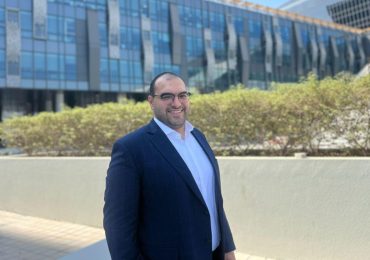Photo Courtesy of: Kayode AyinOluwa
Kayode AyinOluwa, a seasoned cybersecurity expert with over a decade of experience, has been setting the standard in developing proactive defense strategies to safeguard enterprises against evolving cyber threats. His work spans various sectors, including finance, healthcare, and legal technology, where he emphasizes the integration of advanced methodologies and rigorous standards to build future-ready security frameworks.
Proactive Defense in Financial Institutions
During his tenure at the Royal Bank of Canada (RBC), Kayode AyinOluwa led key initiatives to modernize the bank’s cybersecurity infrastructure. He was instrumental in developing a centralized client consent data model that supported micro-segmentation and secure identity mapping across business units. This initiative improved compliance with data privacy regulations, including the California Consumer Privacy Act (CCPA) and Quebec’s privacy law (QCPA). It also reportedly increased client engagement by 25 percent.
The model allowed RBC to consolidate client preferences and behavioral data across its Personal and Commercial Banking, Wealth Management, and Capital Markets divisions. This enabled the organization to identify and serve newcomers, young professionals, students, and high-net-worth clients with greater precision.
Beyond improving compliance, Kayode AyinOluwa’s work contributed to the development of RBC’s first fully digital onboarding platform in Canada. This system enabled secure, seamless account opening supported by real-time identity verification. His contribution established a secure foundation upon which future digital financial services could scale.
Kayode AyinOluwa helped launch RBC’s first fully digital onboarding platform in Canada, combining real-time identity verification with privacy-first data handling. Built for regulatory flexibility, the system supports jurisdiction-specific privacy controls, data residency, and consent workflows. This foundation has allowed RBC to scale digital services across the U.S., Europe, and other regions in compliance with CCPA, QCPA, GDPR, and local regulations.
Predictive Threat Modeling in Practice
Kayode AyinOluwa served as a Cyber Security Product Manager in the financial sector, where he led the development of predictive analytics for threat detection. He oversaw the use of role mining, deep learning, sentiment analysis, and statistical correlation to identify anomalous access patterns and behavioral signals linked to insider threats and compromised accounts. Through the use of sentiment analysis and statistical correlation techniques, his team was able to identify subtle behavioral anomalies and indicators of compromise that often go undetected by signature-based tools.
He also directed joint research initiatives that contributed to the design and implementation of cyber analytics platforms and Joint Security Operations Centre (JSOC) models within large-scale banking environments. These models enabled coordinated threat intelligence sharing and collaborative incident response across operational teams and business units.
By applying machine learning, graph theory, and real-time telemetry, Kayode AyinOluwa built advanced threat hunting use cases tailored to detecting advanced persistent threats (APTs) and insider activity. This proactive, intelligence-driven approach to cybersecurity enabled financial institutions to anticipate and respond to emerging threats more effectively. The scalable foundation he established for predictive threat modeling has broad applicability to other high-risk sectors, such as healthcare and legal technology, where data sensitivity and infrastructure complexity demand a forward-leaning defense posture
Anticipating the Next Generation of Threats
Kayode AyinOluwa’s cybersecurity approach is built around the principle that security systems must evolve continuously to match the sophistication of emerging threats. Rather than focus on static defenses, he integrates predictive modeling and threat simulations to prepare organizations for risk scenarios that have not yet fully materialized.
He has worked with teams to incorporate future-centric frameworks such as MITRE ATT&CK for behavior-based threat detection and proactive risk assessment and MITRE ATLAS to incorporate adversary tactics and techniques against Al-enabled systems based on real-world attack observations. His strategies account for the growing challenges related to cloud-native infrastructure, software supply chain risks, and insider threats.
Advocating for AI-Driven Cybersecurity
Kayode AyinOluwa has consistently advocated for the use of AI-enabled tools to strengthen enterprise security. His publication, “The Impact and Limitations of Artificial Intelligence in Cybersecurity,” explores how machine learning (ML) and neural networks enhance threat visibility. He describes how AI can uncover subtle behavioral anomalies and detect attacks that traditional systems may overlook.
He also outlines the risks that arise when AI is misused by adversaries or deployed without proper governance. These include overreliance on black-box systems, privacy concerns due to excessive data collection, and the growing sophistication of AI-generated threats.
His analysis reflects a balanced approach: AI tools must be deployed with structured oversight and must complement, not replace, foundational security practices.
Strengthening Cybersecurity in Healthcare and Legal Sectors
In healthcare, Kayode AyinOluwa has tackled rising data breach risks linked to outdated systems and fragmented compliance. He led deployments of real-time threat monitoring and third-party risk frameworks, cutting critical vulnerabilities by 40% within a year. His efforts contributed to HIPAA and SOC 2 audit completions for multiple health-tech and legal-tech clients, with zero major findings and faster remediation cycles.
In legal technology, AyinOluwa partnered with litigation platforms to harden cloud-native data systems. His guidance drove adoption of secure API integrations, tamper-proof audit logs, and attribute-based access controls. These measures cut unauthorized document access incidents by 75% and enabled clients to meet 100% audit readiness under privacy laws including PIPEDA, GDPR, and CCPA.
By embedding measurable controls across both sectors, AyinOluwa has strengthened operational resilience and reinforced client trust.
Strategic Foresight
Kayode AyinOluwa’s contributions to cybersecurity demonstrate not only his technical depth but also his ability to forecast, design, and implement strategies that align with the evolving security needs of global industries. His track record in banking, healthcare, and legal technology reveals a consistent principle: build systems that can defend against today’s threats while adapting to tomorrow’s risks.
By focusing on anticipatory design and institutional preparedness, AyinOluwa continues to influence how leading organizations structure their enterprise defense strategies for the long term.
















